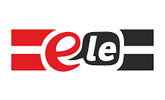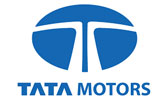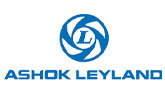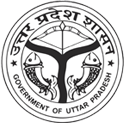





UP is implementing several key interventions to promote and enhance & EV Manufacturing in the State. The Uttar Pradesh government has identified over 2,000 acres of land in various industrial areas across the state for the development of electric vehicle (EV) manufacturing units. Uttar Pradesh Electric Vehicle Policy, 2022 provides incentives and subsidies for EV manufacturers and buyers, along with promoting charging infrastructure development.
The government has introduced electric buses in the state's public transport system to reduce air pollution and dependence on fossil fuels and is exploring options to incentivize battery manufacturing units to support the growing EV industry's needs. It is also aiming to support research and development efforts in the EV sector by collaborating with academic institutions and research organizations.
The state government is exploring future prospects in the sector by tying up with research facilities focused on emerging battery chemistries and testing labs for industrial quality assessment of products. It is also setting-up charging & swapping stations to increase consumer confidence in EV and introducing Battery/ EV related curriculum in ITIs located in the state.
Hybrid Electric, Plug-in Electric Vehicle, Electric Vehicle Manufacturing & Components such as motors, power electronic kits, etc.
Battery Manufacturing, including R&D
Fast Charging Station
Slow Charging Station
Battery Swapping Station
Road infrastructure with use of latest technology solutions
Charging infrastructure and EV Manufacturing
Manufacturing clusters in Central & Western regions for auto ancillaries and battery pack manufacturing
Setting up of Ancillary Industries
Manufacturing facility with an In-House R&D centre
Hybrid & Electric Vehicles Components
Transmission & Steering Parts
Original Equipment Manufacturers (OEMs)
| Sr. No. | Department Name | Service Name | Timeline (Days) | Category | Criteria | |
|---|---|---|---|---|---|---|
 |
Board of Revenue | Land Purchase Permission (Dhara 89) | 60 | In case applicant wants to purchase more than 12.5 Acre Land | ||
| Change of Land Use (Section 80) | 45 | In case applicant wants to change agriculture land to non-agriculture land | ||||
 |
Department of Labor Website Link |
Approval of plan and permission to construct/extend/or take into use any building as a factory under the Factories Act, 1948 | 30 | If factory having 40 or more workers without power. Or Factory having 20 or more workers with power. | ||
| Registration and grant of license under The Factories Act, 1948 | 30 | If factory having 40 or more workers without power. Or Factory having 20 or more workers with power. | ||||
| Registration of principal employer's establishment under provision of The Contracts Labor (Regulation and Abolition) Act, 1970 | 30 | Every establishment in which 50 or more workmen are employed | ||||
| Registration of establishment under the Inter State Migrant Workmen (RE/CS) Act, 1979 | 30 | Every establishment in which 5 or more inter-state migrant workmen are employed. | ||||
| Registration under The Building and Other Construction Workers (Regulation of Employment and Conditions of Service) Act, 1996 | 30 | Govt - Unit any number and Pvt unit 10 and more employee and Investment 10 Lac and above any number of employees | ||||
 |
Department of Stamp and Registration Website Link |
Property Registration | 1 | If applicant wants to register properties | ||
 |
Pollution Control Board Website Link |
Consent to Establish Under Air and Water Act (NOC) | 120 | Mandatory | ||
| Consolidated Form for Consent under Water Act 1974 Air Act 1981 and authorization under the Hazardous and Other Wastes (Management and Transboundary Movement) Rules 2016 | 120 | Mandatory | ||||
| Registration under Plastic Waste Management Rules 2016 | 90 | If applicant deals with plastic waste | ||||
| Authorization under E-Waste (Management) Rules 2016 | 120 | If applicant deals with e- waste | ||||
 |
Uttar Pradesh Fire Services Website Link |
NOC from Fire Department (prior to commencement of construction activities) or Provisional | 15 | Mandatory | ||
 |
Uttar Pradesh Power Corporation Limited Website Link |
Power Connection | 30 | If applicant require power connection | ||
 |
Forest and Wildlife Department Website Link |
NOC for Tree Felling | 15 | If applicant wants to cut tree | ||
 |
Registrar Firms Societies and Chits Website Link |
Registration of Partnership firms, Society | 30 | If applicant wants to register Firm or Society | ||
 |
Public Works Department Website Link |
Road Cutting Permissions | 7 | In case applicants wants cut road | ||
 |
Directorate of Electrical Safety Website Link |
Initial Inspection of Low Voltage Installation | 4 | If applicant require power connection | ||
 |
|
Building Plan Approval | 15 | In case applicant wants to construct building | ||
| Occupancy Certificate | 25 | In case applicant wants to obtain Occupancy Certificate | ||||
 |
Urban Department Website Link |
Water Connection of Industrial Water | 15 | In case applicant wants a water connection | ||